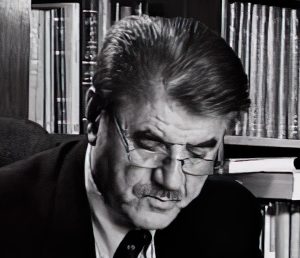Saleh Nikbakht :”The Spirit of Khodadad Trembles in His Grave!”
Economic corruption in any country brings significant costs, from market disruptions and hindrance to economic development to the creation of a nouveau riche class and deepening the economic divide between rich and poor. In recent years, various examples of corruption in the country’s economic system, involving both small and large amounts, have emerged. Many people ask what weaknesses in the economic system allow for the frequent emergence of corruption cases.
Saleh Nikbakht, a senior lawyer who represented Bank Saderat in one of the most sensational corruption cases of the 1990s (the so-called 123 billion toman corruption case), states: “Financial corruption in the 1990s wouldn’t even count as a crime compared to recent corruption.” In that case, Fazel Khodadad was ultimately executed for disrupting Iran’s economic system, while Morteza Rafighdoost was released from prison some time later. Nikbakht believes that each corrupt individual has eroded public trust and caused people to doubt the capabilities of the country’s administrative system. He asserts that the way to combat corruption is to reform the systems, not just identify the fraudsters.
Administrative Systems and Financial Corruption
Nikbakht responds to the question of how the economic system becomes corrupt by sharing an example: “A man would come home every day and complain to his wife and children that he had been swindled again. His wife told him to be more careful to avoid being deceived. The husband replied that he does try, but the swindles change color every day.”
This analogy reflects the situation of economic corruption in Iran. The colorful scams that have plagued the country’s economic system over the past eight years are so terrifying that the spirit of Fazel Khodadad, executed in the infamous 123 billion toman corruption case of the 1990s, trembles in his grave. Compared to what we hear about the 3,000 billion toman corruption case, the Babak Zanjani case, and others, Khodadad wouldn’t even be considered a criminal. Financial corruption in the 1990s wouldn’t even count as a crime compared to the recent corruptions.
System Reforms
Nikbakht believes that the factors enabling financial corruption in administrative systems change their appearance and are hard to identify. Therefore, instead of trying to discern the colors of these scams, we should focus on reforming the systems. Since the enactment of the law on increasing penalties for bribery, embezzlement, and fraud 25 years ago, it was clear that our society faced a crisis from a criminal justice perspective. Legislators deemed it necessary to revise these laws to impose harsher penalties on offenders. However, combating crime is not achieved solely through increased penalties; in addition to harsher punishment and enhancing the judicial system, system reforms are essential.
Combating Corruption and Information Dissemination
Nikbakht emphasizes the importance of information freedom and the freedom of mass media to assist the judiciary and law enforcement agencies. He states: “There is a simple way to combat financial corruption and eradicate it, and that is through information dissemination. Media should be free to report on systemic corruption without engaging in finger-pointing and accusations. In such a situation, inspection and supervisory bodies will awaken, and their sensors can easily detect such corruption. After detecting such corruption, the culprits, regardless of their position, should be fearlessly introduced to the public.”
The Babak Zanjani Case
Regarding the Babak Zanjani case, Nikbakht remarks that the information released so far lacks legal substance and is mostly hype. He stresses the need to identify the roots of the issue and urges the judiciary to clarify information for the public as much as possible. Nikbakht highlights that managing this issue is more challenging than uncovering corruption. He states: “Babak Zanjani is not the last Babak Zanjani, just as Fazel Khodadad was executed, but corruption did not end.”

